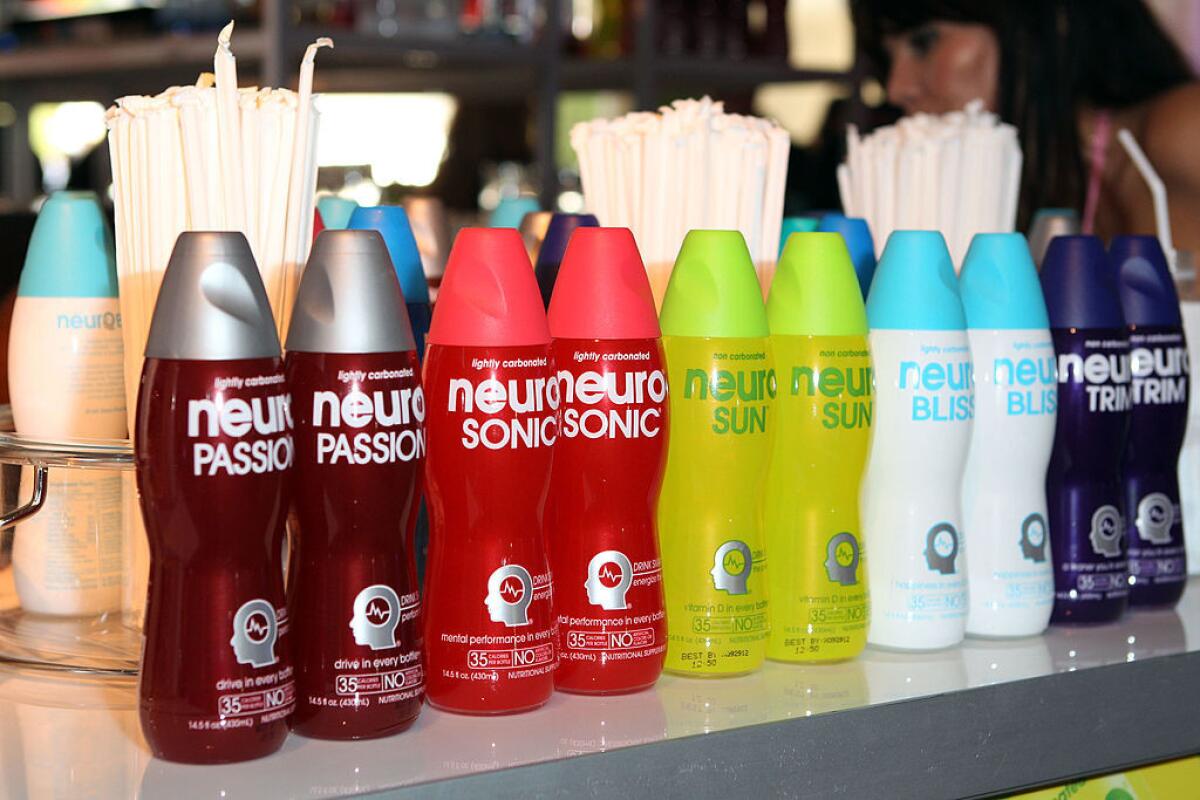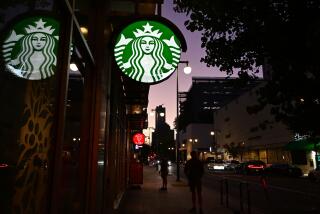Too good to be true? More food companies settling over questionable advertising claims

Earlier this month, Neurobrands agreed to pay $500,000 to settle a lawsuit by the Santa Monica City Attorney and the Los Angeles County District Attorney claiming its advertising was misleading.
If a Santa Monica city attorney had taken a different route to work in July three years ago, Neurobrands LLC might have saved $500,000.
On that day, the lawyer noticed a company truck that had some of the drink-maker’s advertising on it, including claims that the beverages helped deliver sustained focus, relieve muscle cramps and normalize sleep patterns.
“The claims appeared questionable,” said Adam Radinsky, the chief of the Santa Monica City Attorney’s Consumer Protection Division.
And because the private company’s offices are less than a mile from the Santa Monica city attorney’s office, Radinsky had jurisdiction.
The Santa Monica City Attorney, along with the Los Angeles County District Attorney, eventually filed suit against Neurobrands, claiming its advertising was misleading. Earlier this month, Neurobrands agreed to pay $500,000 to settle the claim and change the labeling on its drinks, which are available at many grocery and convenience stores, including Wal-Mart and Rite Aid.
The case is the latest in a growing number of lawsuits targeting food companies, according to lawyers and academics. Over the past four years, companies including Nutella, Naked Juice and Vitaminwater have paid millions of dollars to settle allegations their advertising or labeling is inaccurate or misleading.
The market has grown so quickly that schools including UCLA, UC Berkeley and Harvard University have added food law departments or classes.
Attorneys like Radinsky say many of the cases serve a vital role in protecting consumers.
“There’s a lot of claims now that are just glossy packaging that’s just plain deceptive,” said Maia Kats, the director of litigation for the Center for Science in the Public Interest, a nonprofit group in Washington, D.C.
The rise in cases is probably tied to growing interest in nutrition, said Michael T. Roberts, the executive director of the Resnick Program for Food Law and Policy at UCLA.
“It’s not a coincidence that we’re seeing more cases in food advertising and labeling as there’s more concern about obesity,” Roberts said.
But others say the trend is another example of frivolous lawsuits and liberal California laws. So many food-related suits have been filed in the Northern District of California — where jurors are assumed to be liberal and health-conscious — that it’s known as “The Food Court.”
“It’s open season on food and beverage companies,” said Chris Noonan, a Neurobrands consultant who works with about 25 other food and beverage companies. He called some of the suits frivolous.
Ferrero USA Inc., the makers of Nutella, agreed to pay $3.05 million in 2012 to consumers after a woman said she’d fed her daughter the hazelnut spread after seeing advertisements that suggested it was part of a healthy breakfast.
And after six years of litigation, Coca-Cola Co. last year agreed to change labels on its Vitaminwater drinks to display calorie counts, add more labeling and stop claiming that the drink may improve metabolic rates or immunity.
See more of our top stories on Facebook >>
Neurobrands’ founder, Diana Jenkins, said the company agreed to the deal to avoid a similar, lengthy legal process but said she still stood by her product.
“What’s inside every bottle of Neuro will remain unchanged; the only thing that will change are some of the words on the outside,” she said in a statement.
Roberts said he expects companies to continue to push the envelope with their marketing claims, even as more attorneys are focused on catching falsehoods.
“It pays to be more conservative than in years past [with the added attention], but it’s a very competitive environment,” he said.
ALSO
Father who confessed to killing his son is charged in wife’s death
Drink up! Mesa Water District relaxes outdoor watering rules starting Sunday
Protests rage outside Trump rally in Orange County; 17 arrested, police car smashed
More to Read
Start your day right
Sign up for Essential California for news, features and recommendations from the L.A. Times and beyond in your inbox six days a week.
You may occasionally receive promotional content from the Los Angeles Times.






